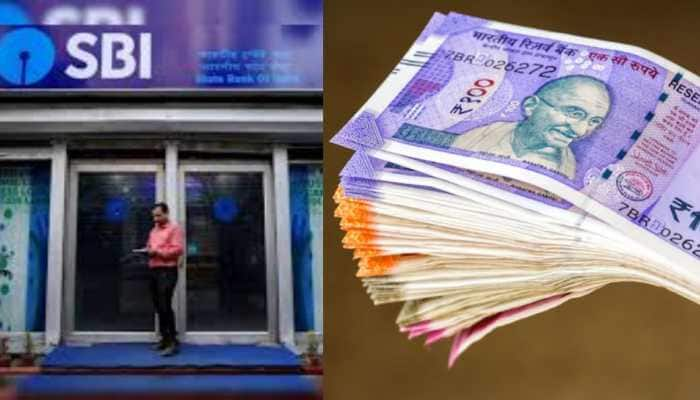Delhi gang-rape: One year on, women still not ‘Nirbhaya’
While Nirbhaya’s case startled and shook us, there are millions of women who face subjugation, harassment, molestation, and are raped without ever reporting these incidents.
Trending Photos
)
A petrifying shriek pierced our hearts, minds and souls on one cold December night of 2012. The scream was not just the plea of help from a young woman later acronymed Nirbhaya because she had been cornered by a group of ruthless predators, but it was metaphorically the cry of helplessness of millions of girls and young women in India, who dread lurking dangers as they step out on lonely streets.
Of the many rape cases that take place every four minutes in this country, Nirbhaya’s example stood out like a flame in the pitch dark recess of our collective conscience. It awakened us to a reality that we resignedly dismiss due to our silent acceptance of the fact that women will continue to be unsafe, if they live in India.
The Nirbhaya fire shone light not only over the unfortunate fate of those many many women who have been attacked, its fury licked and lashed wildly at our inertia, set fire to our imagination, and threatened to turn into a conflagration that would consume power centres at Raisina Hill.
For years we have been mute spectators to the ever deteriorating condition of women’s safety, and for years we have read newspapers full of bloodied incidents; but Nirbhaya case seemed something else.
The unnamed young woman was not just raped, she was brutalized in body and soul. The gruesomeness of the incident was like few others in the past, and no normal human being could remain untouched or undisturbed when details emerged of what actually transpired in that ill-fated bus, as it circled menacingly on Ring Road in South Delhi.
While Nirbhaya’s case startled and shook us, there are millions of women who face subjugation, harassment, molestation, and are raped without ever reporting these incidents.
Even if we go just by figures that are in the public domain, the scenario seems horrific enough. As per the report of National Crime Records Bureau (NCRB) - “Crime in India 2012” – rape is the fastest growing crime in India and has jumped by 902% since 1971. Of the total number of cases reported, in a shocking 98.2% the offenders were known to the victims. Last year alone, a total of 24,923 rape cases were registered in the country.
As far as dispensing justice is concerned, India’s track record is even more abysmal with only one-third of all complaints converting into FIRs. Of the FIRs registered, charge-sheets are issued in only half the cases, and further trials are completed in just over 14% of the charge-sheeted cases, from among which offenders are found guilty only in a quarter. Mathematically, this means less than 0.5% of people against whom a complaint has been filed ever get punished!
Expectedly, Delhi lives up to its reputation of being the rape capital of India – it has the maximum number of rape cases reported amongst all major cities of the country. A document called ‘Crime against Women’ tabled in Parliament in 2011 endorses the fact with Delhi indexing 433 cases. Mumbai is a distant second with 235 cases, followed by Bhopal that registered 100 incidents of rape. Bangalore, Indore and Jaipur are the next cities in line, while Madhya Pradesh is the most unsafe when states are taken as a whole.
Of the total rape cases reported in the country in 2011, a little over one-tenth of the victims were girls under 14 years of age! Nineteen percent were teenage girls between 14 and 18, while 54% of the victims were in the age group 18 to 30 years. Fifteen percent of the victims were between 30-50 years old and 0.6% were over 50 years.
If we were to look at the issue of women’s safety overall - including stalking, molestation, dowry deaths etc – NCRB 2012 data shows Vijayawada in Andhra Pradesh is the most unsafe followed by cities mostly in the Hindi heartland region like Kota, Kollam (this one being in Kerala), Jaipur, Indore, Jodhpur, Gwalior, Jabalpur, Patna, Srinagar, Durg, Bhilainagar, Bhopal, Meerut, Agra, Faridabad, and then Delhi.
Meanwhile, in the aftermath of Nirbhaya case, the government had hurriedly passed an ordinance against sexual violence. However, many are sceptical about its effectiveness considering that it overlooks many of the recommendations made by Justice J S Verma Committee. For example, marital rape is not taken into consideration, and there are many loopholes when dealing with sexual violence cases perpetuated by personnel of security forces and public servants.
The law also fails to accept the Verma Committee recommendations on protecting the victim from the traumatising post rape examination called the ‘two-finger test’.
Not only should all the above considerations be included in future law-making processes, Police reform – both urban and rural – is an absolute must. Police need to be trained so as to change their mental conditioning in matters of women’s status, pressed about sensitive handling of victims and urged to speedily take action in case a complaint of sexual violence is registered.
The government, police and administration need to learn lessons fast, but the biggest transformation must take place in our homes. We, the people, need to change and free ourselves from cobwebs of archaic beliefs related with a women and her perceived diminutive status.
Economic disparity that leaves many on the edge of society (these people hang out in packs and wish to endorse their position in society through acts of violence) and the misplaced belief in male superiority have been found to be fundamental reasons behind high rates of crime against women. Over and above, the lack of convictions in rape cases and associated dishonour linked with the victim helps buy silence of many of the unfortunate.
But this silence cannot be taken for granted forever.
As witnessed during the Nirbhaya case, the dormant angst of so many of us can erupt any time like a volcano, scald the consecrated lanes of Rajpath, shake government establishments and threaten to liquefy the foundations of our societal set up.
The scenario is scary. The clock is ticking.
Stay informed on all the latest news, real-time breaking news updates, and follow all the important headlines in india news and world News on Zee News.
Advertisement
Live Tv
Advertisement







)
)
)
)
)
)
)
)
)
)
